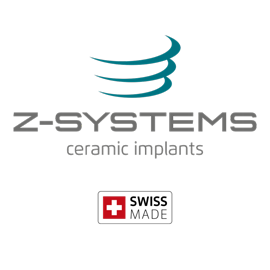In modern dentistry, dental implants are the pinnacle of tooth replacement options, offering unparalleled functionality, aesthetics, and longevity. Understanding dental implants' distinct advantages over other options is crucial if you're considering restoring your smile and dental function.
Anatomy of a Dental Implant
A dental implant consists of three essential components:
1. The Implant:
Crafted from biocompatible materials like titanium or zirconia, the implant is a sturdy foundation akin to a natural tooth root. Surgically placed into the jawbone, it integrates seamlessly over time, providing unparalleled stability and support.
2. The Abutment:
This connector piece sits atop the implant, serving as the intermediary between the implant and the prosthetic tooth. Customized to ensure a precise fit, the abutment plays a pivotal role in anchoring the artificial tooth securely in place.
3. The Crown:
The crown is the visible component of the dental implant. Individually tailored to match the shape, size, and color of your natural teeth, it is meticulously designed for optimal aesthetics and functionality. It seamlessly blends with your existing dentition, restoring your smile with confidence.
Dental Implants Vs. Bridges Vs. Dentures: Understanding the Difference
Bridges:
While bridges offer a cosmetic solution for replacing missing teeth, they have significant drawbacks. Unlike dental implants, bridges necessitate the alteration of adjacent healthy teeth, compromising their integrity. Moreover, bridges fail to address the loss of the tooth root, leading to bone resorption over time.
Dentures:
Traditionally used to replace multiple missing teeth, dentures provide a quick fix for restoring aesthetics. However, they lack the stability and functionality of dental implants. Furthermore, dentures contribute to jawbone deterioration due to the absence of stimulation, resulting in ill-fitting prosthetics and discomfort.
Dental Implants:
Distinguished by their ability to mimic the natural tooth structure, dental implants reign supreme in tooth replacement. By integrating with the jawbone, implants prevent bone loss and preserve facial aesthetics. Dental implants can last a lifetime with proper care, offering unparalleled durability and functionality.
The Dental Implant Procedure: A Step-by-Step Overview
Pre-Surgery:
Dentists meticulously plan the implant placement using cutting-edge technology, such as intraoral scanners. These advanced scans enable precise treatment planning, ensuring optimal outcomes for each patient.
Surgery:
Dental implant surgery is performed on an outpatient basis and involves the precise placement of the implant into the jawbone. While patients may opt for local anesthesia or sedation, the procedure itself is relatively painless. Following implant placement, temporary prosthetics may be affixed, allowing patients to resume daily activities with minimal disruption.
Recovery:
While individual experiences may vary, most patients report minimal discomfort post-surgery, typically managed with over-the-counter pain medication. While full recovery may take several months, patients can expect to resume normal chewing function once the implant fully integrates with the surrounding bone tissue.
The Materials: Titanium Vs. Zirconia
For years, titanium has been the go-to material for dental implants. It’s a durable metal that fuses well with bone and has high success rates. However, it isn't without its drawbacks.
Enter zirconia, a metal-free ceramic boasting similar durability, bone fusion capabilities, and success rates as titanium, but with distinct advantages.
Here's a comprehensive comparison:
Appearance:
Titanium's dark gray hue can sometimes show through the gums, resulting in a less-than-natural 'gray gum' appearance. In contrast, zirconia's pristine white ceramic ensures a beautiful and natural look, regardless of visibility.
Biocompatibility:
Titanium's tendency to corrode after placement can release metal particles into the gums and bloodstream, leading to irritation, inflammation, and potential allergic reactions. Zirconia, on the other hand, poses no such risk. Being non-corrosive and metal-free, it offers superior biocompatibility and minimizes the likelihood of adverse reactions.
Strength:
Compressive strength is a crucial factor when considering dental implant materials. Of the two, titanium falls short with a rating of 970 mPa. Zirconia, however, boasts a staggering 2000 mPa. This means zirconia implants can withstand significantly higher forces before breaking, ensuring long-lasting stability and reliability.
Medical Opinion:
Oral surgeons nationwide recognize the merits of metal-free implants, with zirconia emerging as a highly anticipated solution. Dr. Ted Fields of Dallas, TX emphasizes the health and aesthetic advantages of zirconia implants.
"Having used all-zirconia implants for more than nine years, the implants, the restorations, and the soft tissues look as beautiful as the day they were restored. There is no better motivation to go back again and again to ceramic products for each new case!" states Dr. Fields.
How To Find A Great Implant Surgeon
This one’s easy! Ceramicdentalimplants.com dental implant surgeons specialize in the placement of Zirconia implants and are located nationwide. Scroll down to the “Find a Ceramic Implant Expert” section and enter your zip code to locate the best doctors near you.






